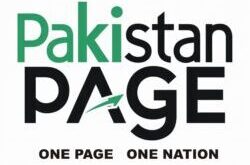New Israel FM says Palestinian state not ‘realistic’
JERUSALEM:Israeli Foreign Minister Gideon Saar on Monday (Nov 11) rejected the establishment of a Palestinian state as a “realistic” goal, after Palestinian leader Mahmud Abbas reiterated his commitment to a “sovereign” country.
“I don’t think this position is realistic today and we must be realistic,” the newly appointed minister said in response to a question about the creation of a Palestinian state in exchange for a normalisation of ties between Israel and Arab countries.
The normalisation drive was a part of the 2020 Abraham Accords overseen by Donald Trump, and the process could resume after the president-elect returns to the White House in January.
A Palestinian state would be “a Hamas state”, Saar added of the Palestinian militant group in Gaza with which Israel has been at war for more than a year.
Abbas, in comments carried by the official Palestinian news agency Wafa, said Sunday that “security and stability” could only be achieved with the establishment of “sovereignty and independence on the land of the Palestinian state”.
The Palestinian Authority leader was speaking ahead of the 20th anniversary Monday of the death of iconic Palestinian leader Yasser Arafat.
Abbas also reaffirmed his push for “peace, and we will continue to work to achieve it”.
As Saar spoke in Jerusalem, Arab and Muslim leaders gathered in Saudi Arabia for a summit addressing the wars in Gaza and Lebanon, where Israel is also fighting Hamas ally Hezbollah.
A draft resolution at the summit stressed “firm support” for “national rights” for the Palestinian people, “foremost among which is their right to freedom and to an independent, sovereign state”.
The war in Gaza erupted with Hamas’s unprecedented attack on southern Israel on Oct 7 last year, which resulted in 1,206 deaths, mostly civilians, according to an AFP tally of Israeli official figures.
Israel’s retaliatory campaign has killed more than 43,603 people in Gaza, most of them civilians, according to data from the Hamas-run territory’s health ministry that the United Nations considers reliable.
Lebanon-based Hezbollah, which like Hamas is backed by Iran, began firing on Israel after the Oct 7 attack.
The regular cross-border exchanges escalated in late September when Israel intensified its air strikes and later sent ground troops into southern Lebanon.

